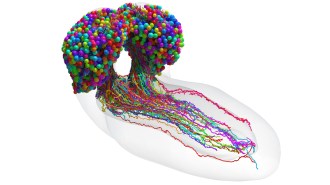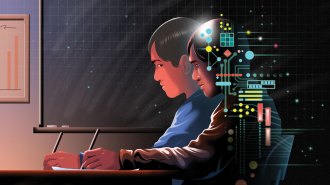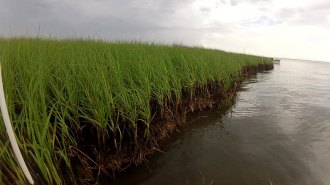Search Results
Applying the ideal gas law
Summary: Students will review the ideal gas law and use a simulation to explain the assumptions made in a recent study about how climate change is impacting baseball.
Learning Outcomes: Exploration of the cause and effect of manipulating conditions of a gas using a simulation, identifying relationships of variables using a mathematical equation and application of theoretical concepts to real-world examples.
Confounding Life and Science Research
In this quick activity, students will discuss confounding factors in their own lives and in scientific research to determine why it is important to identify and control for those factors.
Learning Outcomes: Reviewing confounding factors and learning why it is important to identify them in science.
How heat and home runs are connected
Students will answer questions about the online Science News article “Baseball’s home run boom is due, in part, to climate change,” which explores how increases in temperatures boost home run numbers. A version of the article, “Climate change spikes baseball homers,” appears in the May 6, 2023 & May 20, 2023 print issue of Science News.
What’s Going On in the Animal Mind?
Some scientists studying animal behavior are interested in whether nonhuman animals are intelligent and self-aware. In this activity, students will explore recent research and draw on their own experiences to consider how intelligence is defined and that definition might differ from one species to another.

The Fruit Fly Brain in Exquisite Detail
Scientists study the tiny fruit fly to understand how organisms work. In this Guide, students will learn how scientists mapped the nerve cells in a larval fruit fly brain — a task that took 12 years — and learn about those cells.
Counting connections in a tiny brain
Students will answer questions about the online Science News article “Scientists have mapped an insect brain in greater detail than ever before,” which explains how researchers approached finding more than 500,000 neural connections in the larval fruit fly brain. A version of the article, “The fruit fly brain in exquisite detail,” appears in the April 22, 2023 issue of Science News.
Studying the brain 101
Students will be introduced to neuroscience by learning about nerve anatomy and physiology, and they will research different methods of studying the brain.
Learning Outcomes: Develop an understanding of how scientists approach the study of the brain.

Homework Help? ChatGPT is Poised to Disrupt Education
Playing around with ChatGPT is enormously fun, and the technology can be useful. But there are pitfalls too. In this Guide, students will learn about AI and the benefits and challenges posed by the chatbot.
What can ChatGPT really do?
Students will answer questions about the online Science News Explores article “Think twice before using ChatGPT for help with homework,” which explains the pros and cons of using ChatGPT.
Can AI fool you?
Students will discuss the meaning of AI and its uses before testing their ability to distinguish between answers written by students and answers written by ChatGPT. After taking a ChatGPT quiz produced by Science News Explores, students will talk about their results and the educational and ethical implications of using the chatbot.
Learning Outcomes: Develop an understanding of artificial intelligence and apply that knowledge to current technologies that use AI.
Cultural Connections for Species at Risk
In the face of habitat loss and pollution, more species around the world are threatened by extinction. But how should conservation resources be allocated? In this activity, students will debate whether the allocation of conservation resources should consider the cultural significance of a species.

Shores Still Reeling from 2010 Oil Spill
Soil erosion happens naturally and through human actions. In this activity, students will explore how an oil spill changed Louisiana’s coastline, and they will look for examples of landscape features that were created by erosion and examples of human-caused erosion in their area.